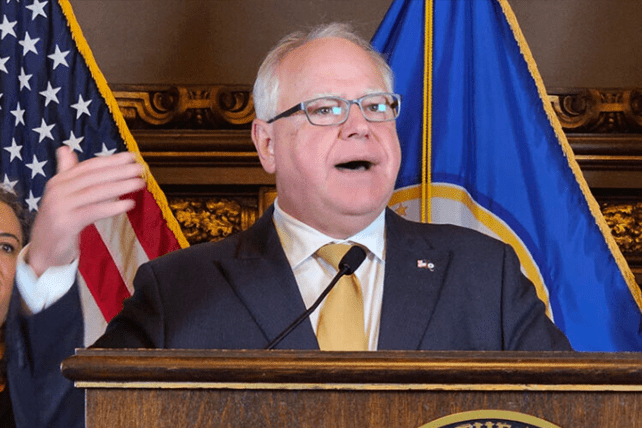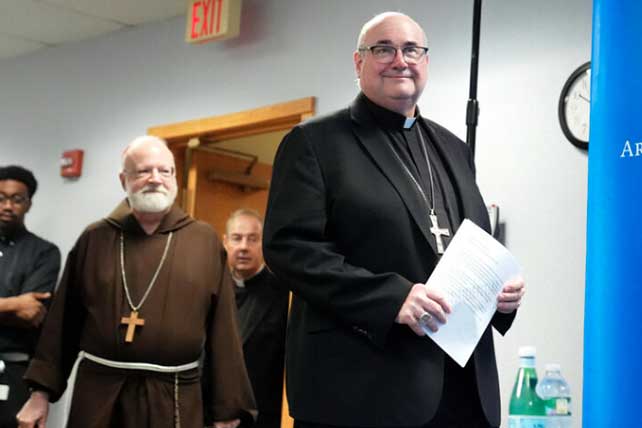Priscilla Shirer is a co-founder with her husband, Jerry, of Going Beyond Ministries. She is the New York Times bestselling author of more than two dozen books, including, “Radiant: His Light, Your Life” and her latest, “I Surrender All.” Priscilla has also had featured roles in films including “War Room,” “I Can Only Imagine,” “Overcomer,” and “The Forge,” which will premiere in August 2024.
“The Stetzer ChurchLeaders Podcast” is part of the ChurchLeaders Podcast Network.
Other Ways To Listen to This Podcast With Priscilla Shirer
► Listen on Amazon
► Listen on Apple
► Listen on Spotify
► Listen on YouTube
Transcript of Interview With Priscilla Shirer
Priscilla Shirer on The Stetzer ChurchLeaders Podcast.mp3: Audio automatically transcribed by Sonix
Priscilla Shirer on The Stetzer ChurchLeaders Podcast.mp3: this mp3 audio file was automatically transcribed by Sonix with the best speech-to-text algorithms. This transcript may contain errors.
Voice Over:
Welcome to the Stetzer Church Leaders Podcast, conversations with today’s top ministry leaders to help you lead better every day. And now, here are your hosts, Ed Stetzer and Daniel Yang.
Daniel Yang:
Welcome to the Stetzer Church Leaders Podcast, where we’re helping Christian leaders navigate and lead through the cultural issues of our day. My name is Daniel Yang, national director of Churches of Welcome at World Relief. And today we’re talking to Priscilla shire. Priscilla and her husband, Jerry are the co-founders of Going Beyond Ministries. She’s the New York Times best selling author of more than two dozen books, including radiant, His Light Your Life and the forthcoming book I Surrender All. Priscilla is also had featured roles in films including War Room, I Can Only Imagine, overcomer, and The Forge, which will premiere in August of 2024. Now let’s go to our hosts, editor in chief of Outreach Magazine and the Dean of the Talbot School of Theology at Stetzer. Yeah.
Ed Stetzer:
So it’s so good to talk to Priscilla and talk about some of these issues that come forward. In her book, particularly I Surrender All. Of course, you know, I used to lead the Wheaton College Billy Graham Center. So we immediately start thinking of, you know, Bev Shea leading that song, I Surrender All. But it’s more than just about, uh, personal conversion and more all to him I freely give is a key part of that. And so in this case, you’re you’re sort of inviting people to surrender everything to Jesus, something I love, something also just transparently what have I been a pastor since I was 21 years of age? I got ordained by a local church that shouldn’t have ordained me too young, and sent me up to only 27 now. Yeah, well, there you go. Go with that. I think my shoes are 27. But anyway, uh, the, uh, and then sent me up to inner city Buffalo, New York to plant a church as this newly ordained pastor. But here’s what I learned. You know, I wrote about this like 20 years after I was or 30 years after I was a Christian, is that I’m still surrendering things to Jesus. And I’m still. And sometimes I would have thought that some of my struggles would have faded into the background. It seems I got new ones and more so. So talk to us a little bit about the whole idea of surrender, which again may be because of Billy Graham, which which I mean, I say that in the best sense of the word. We think of that as I’m coming to Christ during this song, but I surrender all talks about Christ, transform me, all parts of me. Talk to us about that.
Priscilla Shirer:
Yeah, it’s a lifestyle. It’s a choice that over the course of the seasons of my life, I am constantly releasing to his grasp. Or rather, I am positioning him in the position of Lord like over every aspect of my life. Like there’s no sacred part and secular part. It’s all sacred. So the political preferences that I have, the decisions that I’m making, the relationship choices I’m making, how I’m governing my money, how I’m building this business, how I’m navigating raising the children, my marriage that I’m trying to see. What is it that honors God? How can I surrender fully to him my entertainment choices? So for the Christian, this issue of discipleship is not only about issues of sin. Of course, those black and white issues, of course, we can point to clearly, but sometimes they’re just issues that are related more to what has more of a priority in your life other than Jesus? What was the strongest voice, the strongest influence? What has more of a hold on you? That, and you know this because when the Lord says, surrender it, let it go. Whether it’s an ambition or it’s a goal or it’s an expectation that you have. How willing are we? What’s the response time in us really being willing to surrender it to him and to trust him with the outcome? That’s what surrendering looks like. That’s what discipleship is about. It is about walking with Jesus through the rhythms of life and constantly repositioning him in the position of main authority and priority. The agenda setter for our lives body, mind, spirit, emotions, entertainment, choices. All of it lines up under the authority of Jesus Christ.
Ed Stetzer:
Yeah, and you start out pretty strong in the book, you know, all or nothing. We’ll talk about that in just a second. I guess. You know, for me, one of the things early on, I guess I was a pastor or church leader, and I’m trying to remember maybe it was Peter Lord or somebody influenced me on this topic and said something like, in the morning, you want to, you know, get and sit down and say that, that in this, you know, for all you know, I can’t like, impact everything. But in this little carpet, this little circle of carpet or whatever, uh, in this place, I surrender everything. Like everything I am. It’s all or nothing. I’m all in, and and I really found that helpful and challenging for the rest of my life. So, you know, pastors and church leaders, they’re thinking that, I mean, this is what they do every day. And it can easily become almost, though a job and not a place of surrender. You get strength in that place of surrender. So, I mean, what what do you mean by all or nothing? And then let’s talk some about what that maybe means for pastors and church leaders who might say, Priscilla, I’m working full time in ministry. I’ve surrendered it all. We think, yeah.
Priscilla Shirer:
Yeah, well, all or nothing. That phrase is, is, you know, sobering. Um, but the reality is that you can be a Christian and not be a disciple because salvation is free. But discipleship costs. There’s a cost to it. Jesus said in Luke chapter nine, anybody who wants to be my disciple is going to deny himself. There’s denial there. There’s self denial. Take up my cross. That means there’s death there. Something’s going to have to die and follow me. Which means you’re leaving things behind. So in the first century, the word disciple, when Jesus used it, their frame of reference would have been completely different than ours. Now, it was actually a secular term that he was using. It was used to describe the, you know, the Greek philosophers, Aristotle, Plato, these guys who were coming in and they were trying to infiltrate Jewish culture with Greek, thought they their two T’s were called disciples. And what that meant was that they would leave everything to follow these Greek teachers so that they could be completely absorbed in this new way of thinking, this new way of reacting, this new way of responding to people, this new way of raising children and formulating traditions in your family. They weren’t just teaching them for an hour and a half on a Sunday. They were saying, no, leave everything and actually attach your life to mine. So what? Discipleship means all or nothing. What that means is that when we are looking towards being disciples, we are deciding that every day of my life and every aspect of my life, I’m tethering myself to Jesus.
Priscilla Shirer:
And I’m asking myself, Lord, what are you asking me to leave behind? Not necessarily because it’s wrong. It just doesn’t line up completely with this whole new way of living, this new way of thinking, this new way of reacting to people, this new way of making choices about the way that I’m going to govern my life. When Jesus said to these first century disciples, this is what it means to be my disciple, they understood that it actually meant a huge letting go and a deep tethering from an entirely one entire lifestyle to choose another one. And so that’s what all or nothing is. Is this just like, you know, the Sunday morning part of your life or the, you know, read a verse a day to keep the devil away part of your life or, you know, the secular part of your life is over here, like you’re a teacher or you’re a lawyer, and you haven’t connected that at all to sacred purposes. Discipleship is the reminder that every element of your life your finances, your preferences, your entertainment choices, your relationships, all of it, you’re now bringing it back under the umbrella the authority of Jesus and saying, okay, how do I do these things that you have gifted me to do that you’ve given me passions to do? How do they I do them in a way that glorifies you and that builds your kingdom and your purposes.
Daniel Yang:
Yeah. I’m curious. I mean, obviously the call to discipleship is, uh, is an evergreen, uh, you know, basic principle of what it means to be a follower of Jesus. But I’m wondering, like, as you’re as this book is coming out, like in our cultural moment in 2024, um, and you started off, you know, uh, discipling Christians to think through everything from their political choices to, you know, their everyday lives, parenting. What is it about right now that you feel like the message of surrendering is so important for pastors and church leaders to put in, put forth in front of their. Their church members. Right now, what’s the urgency behind the idea of surrendering right now?
Priscilla Shirer:
Well, a couple of things come to my mind, and one of them is that we do live right now in a very, um, poignant hustle grind culture. It is self-focused. It is, um, and there’s nothing wrong with being ambitious and working towards goals, but there’s this undercurrent of I’m going to get mine and I’m going to run over whoever I’ve got to do to get it to be successful, to build a following, to build a platform. Me, me, me, me, me. And if we’re not careful, we will Christianize that. We will slap Jesus’s name on that and just continue to move forward in our own willpower. Just sheer willpower headed towards ambitions that look holy because they’ve got Jesus name on it. But they could be completely detached from what he is actually calling us to do. So surrender is this sobering reminder that we need to go back to the drawing board and say, Lord, what is your kingdom purpose here? Why have you entrusted this field or this industry to me? Why have you entrusted these people to me that are in my sphere of influence? I if my if my goals that I that I have for myself, if they line up with yours, great confirm that. But if in any way there are nuances of them, layers of them ways I’m going about them that are antithetical to what it is that you had planned for me, for the building of my character, for the shoring up of my faith, for the long game here with generational impact. If there’s anything that actually don’t line up that I haven’t realized it because my platform has been applauding me, and the people that are following me have been saying, I’m doing so great, would I just pause for a moment and say, Lord, I surrender, show me what’s not like you, and then give me the courage to step back and to do it your way.
Ed Stetzer:
Yeah. And I’m really I’m intrigued by what that looks like for pastors and church leaders. And let me frame it in a way that’s probably negative. Um, I’ve, you know, I’ve seen a lot of blow ups and failures up close. You have you have as well. And there does seem to be a common factor is that somewhere along the way, there’s often. I’m trying to remember who talked to me about this. I think it was Nancy Beech, she said. There’s a there’s kind of a triangle she talked about is that first there’s loneliness, isolation, and then there’s entitlement because you’re lonely and isolated, and then there’s bad decisions that sort of flow from that. And I’m probably not articulating it well. But what seems to happen in all of those cases? There is a underlying root that somehow this leader has disconnected. I don’t know. I would say, you know, biblically disconnected from the vine where kind of got doing the work of the Lord and not focused on the Lord of the work. In other words, it too is a disciple making issue. And rather than surrendering all they kind of have found, I don’t know. We seem to find this this way to kind of surrender our vocational work to the Lord while our personal life is dry and withered and failing. And that’s where ultimately it seems the failure comes. So our audience, pastors and church leaders. So what cautions, because you’ve been I mean, you grew, you grew up in church. You’ve been around pastors and Christian leaders. You you’re you’re a globally known Christian leader and teacher yourself. What I’m sure you’ve had these conversations. What advice would you give to pastors and church leaders about surrendering, maybe those hidden places or those struggling places to the Lord?
Priscilla Shirer:
Several things. The first thing that came to my mind is you asked that question was that years ago, Nancy Leigh DeMoss said something to me that I’ll never forget. She said, Priscilla, I’ve been so grateful through all the years that the Lord has surrounded me with people. She was talking about people on her board and people that are mentors to her in her life. The Lord has surrounded me with people that care more about the state of my soul than they do the state of my ministry. Oh that’s good. I’ve never forgotten that. Yeah, that to me is one of the most key issues for church leadership today. That when we come into positions of prominence or in some sort of position of power or recognition within the construct of the church or the ministry that the Lord has entrusted to us, if we are not intentional and deliberate about making sure we have spiritual covering and authority to whom we are surrendered, mean they can get up in our business and we can ask hard questions. They’ll give us hard answers, and we’re surrendered to their authority.
Priscilla Shirer:
No matter what level or position of leadership we are in, we all need to be covered by someone who cares more about the state of our soul than they do our ministry. So they’re going to ask us about the hidden places. They’re going to require answers. And then if they give us a directive because we trust this person and we’ve kind of been this covenant relationship with them, if they give us a hard directive about needing that sabbatical, about needing to go tend to our wife or our husband or our children in a particular season and step away from what might be a more public applauded platform. We’re willing to surrender to that because this person has our best interest, the state of our soul in mind. I think that’s one one of been one of the biggest, um, hiccups for church leaders today is that we’re not all surrendered to some authority in our life who is discipling us and making sure that we’re okay not just in the public parts, but in the private parts of our life.
Ed Stetzer:
You know, all the all the Anglicans right now have an idea. And they, they, they they would say, get a bishop and that person can speak into you now because but in our case, most of us are not in I mean, just statistically, most of us are not in denominations where there’s somebody over us. Our mutual friend John Jenkins talks about, you know, I’ve spoken to his pastors that he covers and he speaks and he asks them the hard questions. So we’re going to have to search that. You’re. I didn’t know that. I didn’t know John Jenkins. Yeah.
Priscilla Shirer:
Jerry and I, Pastor John, you know, we’re not. Jerry and I aren’t pastors, so it’s a little bit different than the pastors that he covers. But Miss Trina, his wife of 40 years at this point. And Pastor John, they have been a spiritual covering to us for 20 years, and it is a covenant relationship we have with them. They can ask about our marriage, they can ask about our finances. They can ask about our communication. They can ask about intimacy. They can ask about anything in our life. We are covenanted to them to give them honest, responsive responses. And if he gives us a directive, we are covenanted to follow that directive. Come on, come on. We trust him.
Ed Stetzer:
Yeah. See, it’s a whole different thing. And, you know, just full transparency. That’s much more common in black church traditions and in Pentecostal church traditions than it is in my tradition. But I have I recently I was over in teaching in the UK and I was I went by The Eagle and The child, the famous pub where the inklings went, C.S. Lewis and Tolkien, and I did a little video saying, you need a squad because you need someone who can speak into your life. And in my case, I have a couple people who actually I have a pastor. So, you know, Eric Geiger is my pastor, so. And you, we’ve all been friends, you know. Eric. Eric. Yes. So, so having people who can speak into your life makes a difference, but you have to sort of seek that out in most places in evangelicalism. So what what would it look like? Let’s say you’ve had John for 20 years. Um, let’s say Daniel Yang needs somebody. What would Daniel do to start that conversation and really try to get someone to speak into your life so that you can have that that accountability towards full surrender. The Setzer Church Leaders Podcast is part of the Church Leaders Podcast Network, which is dedicated to resourcing church leaders in order to help them face the complexities of ministry. Today, the Church Leaders Podcast Network supports pastors and ministry leaders by challenging assumptions, by providing insights and offering practical advice and solutions and steps that will help church leaders navigate the variety of cultures and contexts that we’re serving and learn more at Church leaders.com/podcast network.
Priscilla Shirer:
We were alert to the fact that it was already happening, meaning the Jenkins. We met them probably 2 or 3 years before this sort of official conversation we had about this, but they were already there. They were already showing us an example of a healthy marriage, and they were raising these six kids. All the chaos of that, they let us in their home. So we saw the beautiful chaos of raising kids and different expectations that you have of what you hope for your children and walking through that as parents. And we saw them navigating the church and trying to do that with humility and integrity. I mean, you know, the Jenkins just humble and generous and kind, and they really love Jesus. So after you’re watching someone who is showing an example not of perfection, but of people who are authentically pursuing Jesus, and then you can see the way that works out in practical rhythms, like, Pastor John’s going to talk to us about finances, he’s going to talk to us about marriage. So in practical ways, you see, there’s actually insight here that they have to share, and they’re already making themselves in some way available to you. They’re willing to answer your questions. They’re willing to let you into their home. Basically, the discipleship is already happening anyway. And then we sat down with them one day when we were at dinner and we said, you know what? We would like to be in an official relationship with you where you cover us, our ministry in particular, but us as a couple, you kind of cover us that we know you, you got our back, but also that we’ve got yours, that we’re going to be students learning and absorbing and watching and coming to you when there’s an issue that a hurdle that we need to get over.
Priscilla Shirer:
And so it really was a literal conversation and a question where we intentionally asked for that. So that’s what I think is asking the Lord to open up your eyes first to see who is already around you. Church leader who’s already in your church that is ten years down the road from you, in marriage or in parenting or in ministry. They’ve already done the thing that you’re hoping to to achieve, whether that’s just faithfulness over the long haul or it’s a specific kind of project that you’re investing in, like writing a book or something, is there somebody right around you? Probably is. Who’ve already? They’ve already done the thing. They’re still walking it out, but they’ve got some consistency under their belt. Well, make it your business to be have an audience with them. And if you find that there’s already a rapport there and a willingness for them to share, and you find that there is an endearment one to the other, then I mean just point blank, ask them. Ask them for that privilege to be in their circle of influence.
Daniel Yang:
So good. Let me let me flip the question a little bit, uh, on your Priscilla, because your ministry is such a public ministry. And, um, I’m wondering how you would counsel those. You know, most of our listeners are church leaders and pastors, but there are those who have public ministries as well, uh, those emerging leaders that are coming into public, uh, ministry. So two things. What is it about, you know, in principle that you would coach and advise those coming into it to be aware of? And then what how has the landscape changed as we’re moving forward 2024?
Priscilla Shirer:
Let’s see. That’s that’s a layered question. One of the things that I’ve known in principle that I’ve sort of seen work worked out, I can’t think of the exact verse and you’re much smarter than me, so you’re going to remember this. But, you know, there’s a I think in Ecclesiastes it says something about arguments being vain, like the the overarching discussions going back and forth, the arguments being vain. Um, I wish I could think of the exact verse in this moment, but there is so much wisdom in staying high while everybody else goes low. There’s a lot of arguments, uh, that are derailing individuals because you’re totally consumed in these social media arguments about secondary issues of theology that not only derail you because now you’re so consumed and overrun with the comments coming back from people that you don’t even know, most of whom aren’t actually really interested in learning truth. They just are there for the argument’s sake. But then there’s a lot of disservice happening in the larger body of Christ because these these, um, the tearing down of each other happening in these public sectors.
Priscilla Shirer:
So I see and of course, that’s a principle, but I see it working itself out so clearly now with the full range of access that all of us have to social media, that you’re going to have to decide what hills has the Lord actually called me to die on? And if this ain’t my hill, I don’t need to die on this hill. I can’t die on every hill. Because then I won’t be available and ready for the one he’s actually given me as an assignment. But I really am watching church leaders or people in ministry die on a myriad of different hills. That’s not even a hill. And so just being prayerful before speaking into and engaging into arguments with everyone from everywhere, most of whom are not interested in actually getting to the truth anyway, is it really where the Lord is asking you to invest yourself, or should you reserve that for the local context where God has placed you and what it is he’s asking you to actually shepherd those people that he’s entrusted to you?
Ed Stetzer:
Come on, come on. You don’t have to show up for every argument you’re invited to, but that’s another story for another day. Okay, so I got to tell you, Priscilla, I, you know, I’ve written some books. None of them sold as much as yours. You’re kind of like famous. Famous? Famous? Not really. Like my daughters. Know how famous and awesome you are? My daughters roll their eyes at their dad. But for Priscilla Shirer, who, um. Hey, my.
Priscilla Shirer:
Sons roll their eyes at me. So we’re in the same camp.
Ed Stetzer:
So it must be the kid thing. Um, so, so. But I got to tell you, I don’t have books. Come out with movies. So what’s the deal? Like you’re a movie star. I still remember we were at LifeWay and you were in the movie. It’s so funny that you were a movie star, all that sort of stuff. But you got that all going on, so. So tell me, tell us. We’ve been talking about the book. Of course I surrender all and, and I think helpful resource for people and it’ll helps I think if church leaders though we should say that we want I mean your desire is this would be something that a catch hold in churches. But what’s the movie tell us about that.
Priscilla Shirer:
Well, it’s.
Priscilla Shirer:
Called The Forge. And it’s like that forging of a sword, you know, where it goes through the fire and it’s molded because you kind of you kind.
Ed Stetzer:
Of have like a thing for swords. And so it’s.
Priscilla Shirer:
Yeah, I blame the Kendrick brothers. Uh, actually.
Priscilla Shirer:
Yeah. No, I.
Ed Stetzer:
Get that, I get.
Priscilla Shirer:
That, yeah.
Priscilla Shirer:
Um, but, you know, I appreciate these brothers so much. Shannon Stephen and Alex Kendrick, because they have so much doggone integrity and they really are preachers disguised as filmmakers. Like, they just want to edify the body of Christ with these films. Seriously, they’re serious about that. And they want to lift up the name of Jesus. And so when they first called me a decade ago and said, hey, will you be in this little.
Priscilla Shirer:
Movie.
Priscilla Shirer:
We’re writing called War Room? I said, no, Daniel. And I said no, because you know what? We have all seen a movie before. That could have been good, except there was that one person in it that thought they could act, and it was a disaster.
Ed Stetzer:
True. It’s true.
Priscilla Shirer:
Yes.
Priscilla Shirer:
So I watched it the first.
Ed Stetzer:
Time, and I wondered if you were going to be that person, but you were not.
Priscilla Shirer:
Oh, listen, you didn’t worry about it any more than I did, I assure you. Oh, man. But, um, the reason why I ended up doing it was because he said to me, and this has been true now of the the it’s this is the fourth time now surprising to me more than anyone that I have been in a film, The Forge, that’s coming out in August. But this is what the kicker was to me. Alex said, Priscilla, as you think about this, remember that if you spoke in a church or in a conference of some sort every weekend and it had a thousand people in it, and you did that every weekend for the rest of your life. You will not reach as many people as one film. Oh, it’s totally crazy.
Ed Stetzer:
Yeah.
Priscilla Shirer:
Oh, so right now, today, War Room has, uh, 200 million people have seen War Room.
Priscilla Shirer:
Wow.
Priscilla Shirer:
So there are people from different faiths, from different backgrounds who would never read a book I’d write, or that you might write or they’d never come to a conference we’re speaking at. They never come to a church, but they’ll go see a good movie. Yeah. So these films like The Forge, which really is about surrender, it’s about discipleship. It’s about one person giving the whole of themselves to the Lord what that looks like to walk with Jesus. But then it’s also about the other aspect of discipleship, what it looks like when a older, wiser believer comes alongside a young man. In this case, he’s 19 years old and another man who is not in vocational ministry. He’s just an excellent businessman. He uses his field of influence, his sphere of influence, to impact the employees that work for him. His eyes are always open to see. Who are the young men in particular, that God sends to me and entrust to me in this company? What can I do to challenge them about responsibility, about character, about how to organize their finances so that it’s balanced? So you see a businessman who loves the Lord taking seriously this aspect of discipleship. So that’s what drew me to the project, is that it’s another unapologetic Jesus film that points the body towards the importance of discipleship again, which, as you said, Daniel, is like a foundational message of our faith that we’ve kind of lost amongst the shuffle of other things. Um, but also, I think it is an entertainment option that draws in people to a message that might not otherwise have an opportunity to engage with it.
Daniel Yang:
And for for our listeners, I mean, The Forge is a spin off or a sequel of War Rooms. So if you if you liked War Room, then you’ll you’ll understand The Forge as well. Priscilla. I mean, as a, as a communicator and as someone who, whose primary ministry is ministry is expository preaching. What is it that you can do in a film that you’re not doing in an expository sermon, and then vice versa. What do you do in an expository sermon that you’re not necessarily being able to accomplish in a film? Because and the reason why I ask is that I know every preacher is always challenged by creativity. And what are you unleashing through filmmaking that actually helps you in your preaching?
Priscilla Shirer:
That is one of the best questions. Well, that’s.
Priscilla Shirer:
Why that’s why we.
Ed Stetzer:
Have Daniel on the podcast.
Priscilla Shirer:
He’s, uh, I don’t even know how to answer that.
Ed Stetzer:
Like, like, I’m sure there’ll be kits that people will have that relate to the film and all that sort of stuff. But you are in my top ten communicators series, you know for sure. So top ten.
Priscilla Shirer:
Thank you for having me.
Priscilla Shirer:
I remember that well.
Priscilla Shirer:
You’re an amazing communicator.
Ed Stetzer:
So so back to his question. So how does how does that frame in the difference between the communication that you might see as you’re teaching and preaching the Bible?
Priscilla Shirer:
Well, I will tell you just practically, it stretches me creatively, creatively and in communication because it’s entirely different. Just like somebody who’s in theater, the way they would act in that role would be completely different than if you’re on a set. It is a very personal, intimate. I’m having one on one conversation. The person with the set and the camera is a third, the a third participant. But I’m speaking in a normal voice and I’m having to disengage from that oratory skill. Right.
Priscilla Shirer:
You can’t you can’t use that.
Ed Stetzer:
Hello, I’m Priscilla Shirer, and I want you to know.
Priscilla Shirer:
Yeah, no.
Priscilla Shirer:
It’s the exact opposite. So it’s been kind of cool in that, you know, whenever you are tapped to do something that’s totally outside the norm of what you usually do, that you’re like a kid in a candy store again, because you’re watching all the nuances of it. Um, you know, most of the people who are on the sets when we do these, these are people in the film industry. So like one guy that was behind the camera, he just came off the Spider-Man set the the latest Spider-Man movie. Like, these people are in the industry of film. So I’m sitting there completely enraptured and engaged by all the people that are hanging from the ceiling with lights and the folks that are pushing carts and the people that are there for continuity. They’re taking down notes of exactly which way I set the water bottle down so that I can do it that way. And every take, there are 80 people working together to make one project work, and my responsibility to be as intimate as possible in this scene is it stretches me because it’s the exact opposite of what I would normally do. And then, of course, expository preaching. My goal is not to tell a story.
Priscilla Shirer:
My goal is to tell the story. So I am not going to the text to prove my point. I’m going to the text to find my point. What is my point? The book is going to tell me, and then I’m going to stick to what the point is that is here, instead of trying to bring my agenda to it, which there’s nothing wrong with that creatively, when you’re bringing a storyline to it and you’re telling a narrative, but with the text, while I’m going to use imagination and while I’m going to use creativity to provide an incubator for the principle that I am sharing, all it is is incubation. What I’m trying to get this audience to receive is exactly what it is that the text says. And if they walk away knowing the story, if they walk away remembering what it is imaginatively that I was able to help the construct, I was able to build in their mind. If they walk away knowing all that, but they don’t know the point of what the verse or verses is said. Then I have actually missed my entire assignment in that moment, as a as a communicator of God’s Word.
Ed Stetzer:
And I’m going to start playing, I surrender all so that pastors and preachers right now can surrender to that message that the text gives us. That’s so good. It’s so good. Okay. So, um, you know, you’re releasing this in summer 2024. You may you may have heard that maybe it’s news to you. I don’t know, um, Daniel, maybe, you know, it’s an election year, so it’s it’s an election year. So. And you’ve already mentioned sometimes this impact our election. So we could ask lots of, uh, pressing, pointed questions on that. But one of the things that I watched happen in 2016 and 2020 is that, uh, particularly 2020 is that our discipleship didn’t hold is a lot of Christians got caught up in ideological discipleship. They were discipled by their cable news choices more than they were by their local churches. They were spiritually shaped by their social media. And that’s on the left and the right, which is, you know, hard, you know, hard for people to to acknowledge that. We just saw Priscilla, you and I have friends that have moved so far theologically to the right and to the left. It’s like, what in the world happened? And that is they got discipled by something and someone else.
Ed Stetzer:
So my hope is one of the reasons I want to have you on. My hope is that 2024, we kind of have the discipleship that can hold. This is going to be a very contentious election depending on when people are listening. It’s not far away from us. So we want people to lean in to surrender all, including their electoral election choices or who they vote for. But at the same time, it’s almost like, how do we counter disciple to the discipleship that’s so overwhelming on people’s phones, the social media so overwhelming through cable news? How do we counter disciple? And I think that’s I mean, again, it’s a key part of what you’re talking about, I surrender all. I particularly found the it interesting. You’re like even on the table of contents, every, every sub point is I mean, you sort of begin with the topic, you know, everything. You are surrendering all everything you become surrendering all everything you want, surrendering all. So, so, man, we need this as people are being caught up in ideological rather than biblical discipleship. Talk to us. How do these pastors and church leaders are listening? How do we counter disciple to the narratives of the world of right and left?
Priscilla Shirer:
Yes.
Priscilla Shirer:
Well, it’s interesting that, as you mentioned, those, you know, particularly 2020, all of that chaos, as you know, was happening at a time when people stopped going to church because of the pandemic, because they couldn’t go to church. So you had people disconnected from the body. We haven’t had people come back to the body in that way where they are active, functioning members of a vibrant, healthy church. Part of the disconnect is that, and, um, if church leaders, people in ministry, if we are not, um, giving people a space that is a healthy body where where they come and when they make their commitment to come back into the house of God where they come is not a clear teaching of God’s Word. Where there’s more opinion, where there’s more personal ideas, where that becomes the platform to share those things as opposed to giving people, what is God saying in this hour from the scriptures that is supposed to practically impact the way we govern our lives? If they are not hearing it in healthy churches, they are not going to hear it at all. The church actually is the mechanism that God has given us, the body of Christ, to be the sounding board in a culture where we’ve got narratives that are being spewed left and right and everything in between about every issue, not just politics, but gender and morality and the redefinition of all sorts of things.
Priscilla Shirer:
The church is supposed to be the place where folks come and actually get to hear what does God say? And unfortunately, we have a whole lot of churches and ministries that are saying, what do I say? As opposed to what does God say? And I think that’s one of the main encouragements for church leaders to make sure that’s the point, not just of what you’re preaching on a Sunday, but that’s the point for your small group leaders. That’s the point for your youth pastor. That’s the point for the people. That is over the different aspects of ministry in your church, that you’re all in alignment, that together, we are here to make sure that these folks who are being discipled by everybody else on their social media feed, they know they can come here to hear a clear word from God on the matter.
Daniel Yang:
Amen. We’ve been talking to Priscilla Shirer. You can learn more about her at Going beyond.com. Be sure to check out her new book, I Surrender All and The Forge Movie, which will premiere in August of 2024. And thanks again for listening to the Sister Church Leaders podcast. You can find more interviews, as well as other great content from ministry leaders at church Leaders Compered Cast and through our new podcast network, Church Leaders Campus Network. And again, if you found our conversation today helpful, I’d love for you to take a few moments. Leave us a review that will help other ministry leaders find us and benefit from our content. Thanks for listening. We’ll see you in the next episode.
Voice Over:
You’ve been listening to the Stetzer Church Leaders podcast for more great interviews as well as articles, videos, and free resources, visit our website at Church leaders.com. Thanks for listening.
Sonix is the world’s most advanced automated transcription, translation, and subtitling platform. Fast, accurate, and affordable.
Automatically convert your mp3 files to text (txt file), Microsoft Word (docx file), and SubRip Subtitle (srt file) in minutes.
Sonix has many features that you’d love including world-class support, automated subtitles, upload many different filetypes, share transcripts, and easily transcribe your Zoom meetings. Try Sonix for free today.
Key Questions for Priscilla Shirer
-Why is it urgent that we surrender to God right now?
-What advice would you give to pastors and church leaders about surrendering their hidden struggles to the Lord?
-What first steps should pastors take if they are seeking someone to be accountable to?
-Tell us about your new movie, “The Forge.”
Key Quotes From Priscilla Shirer
“For the Christian, this issue of discipleship is not only about issues of sin, those black and white issues of course we can point to clearly, but sometimes they’re just issues that are related more to what has more of a priority in your life other than Jesus. What’s the strongest voice, the strongest influence?”
“That’s what surrendering looks like. That’s what discipleship is about. It is about walking with Jesus through the rhythms of life and constantly repositioning him in the position of main authority and priority.”
“The reality is that you can be a Christian and not be a disciple because salvation is free, but discipleship costs.”
“When we are looking towards being disciples, we are deciding that every day of my life and every aspect of my life, I’m tethering myself to Jesus. And I’m asking myself, what are you asking me to leave behind? Not necessarily because it’s wrong—it just doesn’t line up completely with this whole new way of living.”

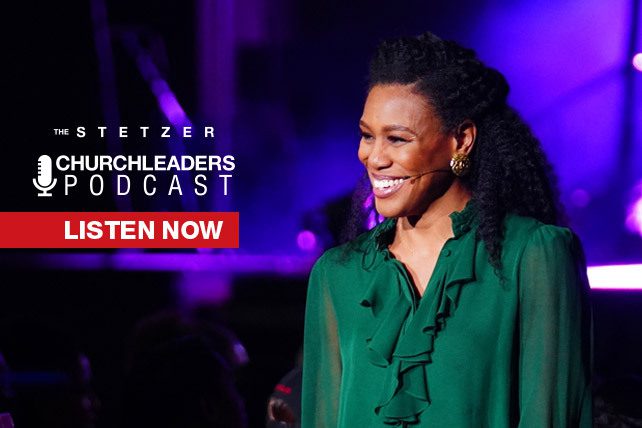



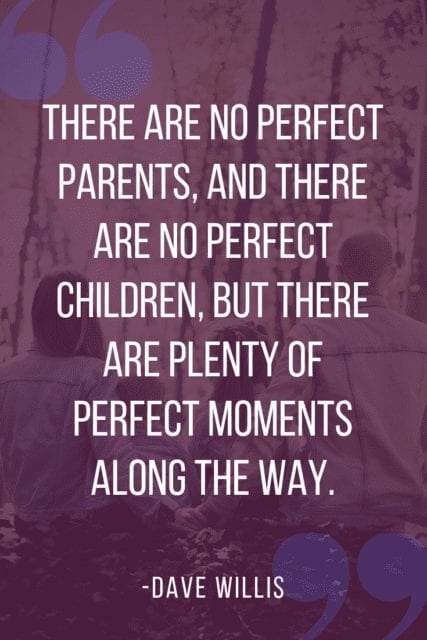
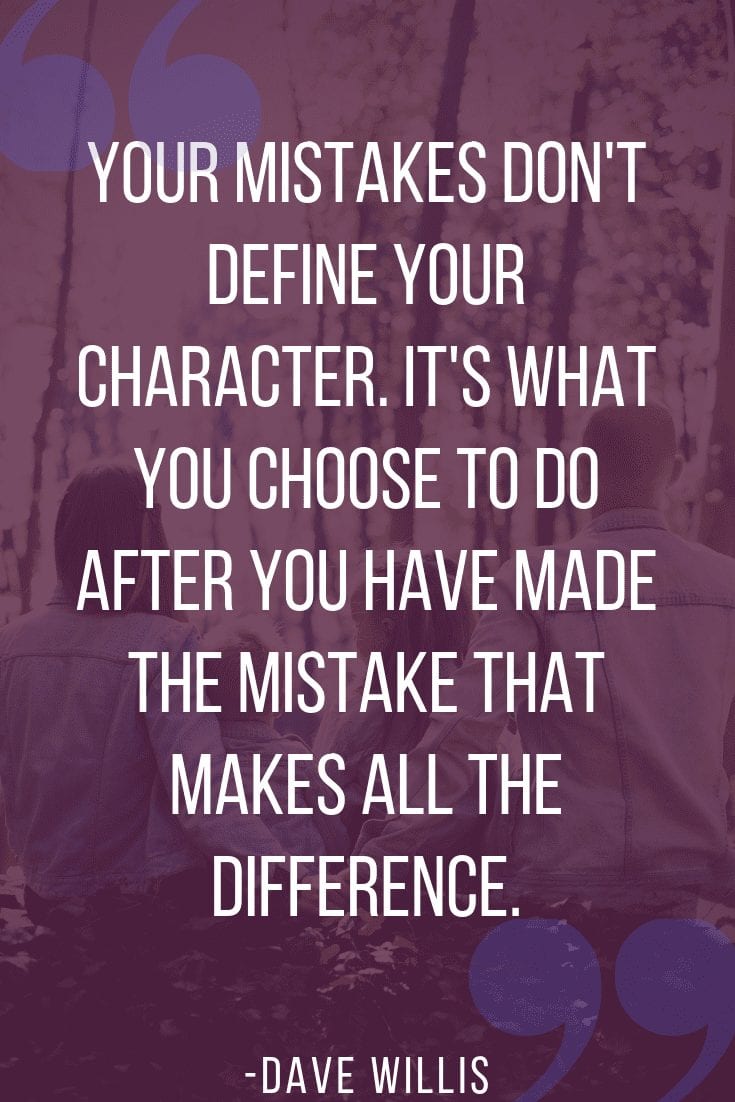

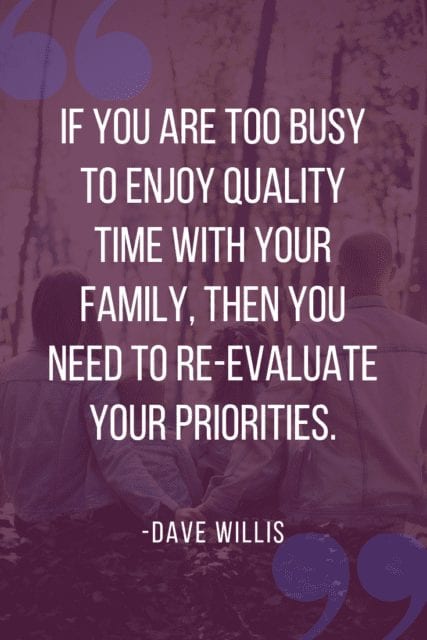 Your kids don’t need you to be
Your kids don’t need you to be 










